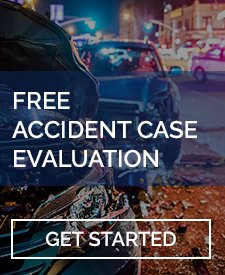After a car wreck, you are coping with a variety of concerns. Are you hurt? How badly? Can you go to work? What about your car? How are you going to pay your bills, provide for your family, and cover the cost of your medical care? Dealing with an insurance adjuster may be the last thing on your mind, but it is a critical step in receiving the compensation you need following an accident – and in protecting your rights.
The phone’s ringing. And ringing. After a car wreck, you will likely be contacted by an insurance adjuster representing your carrier and/or the company providing coverage to the other driver. The first step is finding out which insurance company they work for.
If it is your insurance company, they will ask about the accident (e.g., what happened? How severe was it? Were you at fault?). If you are injured, your PIP insurance will cover this regardless of who is at fault. The adjuster will ask you to fill out a PIP application, including an authorization form for medical records.
If Florida is a “no-fault” state, why does your insurance company ask if you were at fault in any way? Well, in case the other driver makes a claim against you, they must be prepared to defend it.
You should comply with your insurance company, as they may deny your claim if you do not – but it is always a smart idea to seek the advice of an experienced Car Accident Attorney, especially if there are issues around a fault or if your injuries were severe.
Now, dealing with an insurance adjuster from the other party’s company is a different matter. Here are some tips to help:
-
Stay Calm – and Polite
After a car wreck, you may be feeling angry, frustrated, scared, stressed… any of all of the above. Taking this out on the adjuster is not helpful.
-
Ask the Insurance Adjuster for Their Information
Make sure you get the name, business address, and phone number of the person with whom you’re speaking, as well as the name of the insurance company and the party that they represent.
-
Do Not Provide Extra Information
Only provide the other party’s insurance adjuster with your name, address, and phone number. If they ask where you are employed, you may give that information. However, do not discuss your work, schedule, income, or details about the accident. Certainly do not admit fault.
The adjuster may ask you to give a statement about the accident or ask questions to determine what happened. Politely decline to answer these questions. You may tell them where and when the accident occurred. But that is it. If pressed, reply, “An investigation is ongoing, and I will discuss the facts at the appropriate time.”
Now is not the appropriate time! And this is not the appropriate party with which to discuss the details of the accident at this point.
-
Don’t Discuss Your Injuries
“What are the nature and extent of your injuries?” It sounds like a harmless question – but do not give a detailed account. Why? You may leave something out, an injury may worsen or be more extensive than you’d previously thought. Say that you are still “treating” and decline further comment. This is well within your rights.
-
Write Down Everything
After you speak with the insurance adjuster, write down the information you learned (e.g., name of the adjuster, information you provided, questions you were asked, etc.).
Some important do’s and don’ts to keep in mind when dealing with an insurance adjuster:
- DO Set Limits on Any Conversations. In your first (short) conversation with the insurance adjuster, tell them that you will not be discussing the matter on the phone. Provide only the bare minimum of information, as we talked about earlier. You don’t want adjusters calling frequently (trying to get you to settle quickly), and you don’t want to provide incomplete or erroneous information, which may impact your claim.
While this may sound attractive – and who wants to prolong their dealings with insurance companies! – wait. What if your injuries are more severe than originally thought? What if they worsen? What if you cannot return to work as quickly as you’d expected? That settlement will quickly dwindle, and you have no recourse for further compensation.
- Do NOT Give a Recorded Statement. The insurance adjuster may try to have you give a tape-recorded statement or ask if they can record your phone call. Do not agree – you do not have to under the law, and they cannot record you without your permission.
When questioned after a car wreck, most people are nervous and tense. You may forget key details or provide incomplete or inaccurate descriptions. It is far better to provide a written statement with advice from an attorney at the appropriate time. Verbal statements are impacted by your nerves, spur-of-the-moment thinking, and other factors. But they become evidence against you that is difficult or impossible to counter.
Simply say, “No, you may not record me.” Remember, this is your right, and you are protecting yourself.
- DO Consult a Car Accident Attorney. Seeing a lawyer for a consultation can help you get the clarity and support you need when dealing with an insurance adjuster. They can even take over communications with the insurance company on your behalf.
When you are injured in a car accident due to another party’s carelessness, recklessness, or negligence, you deserve compensation. Be very careful when dealing with an insurance adjuster, and don’t hesitate to get the professional guidance you need. The LaBovick Law Group’s team of experienced lawyers is here to help you. Contact us today!





